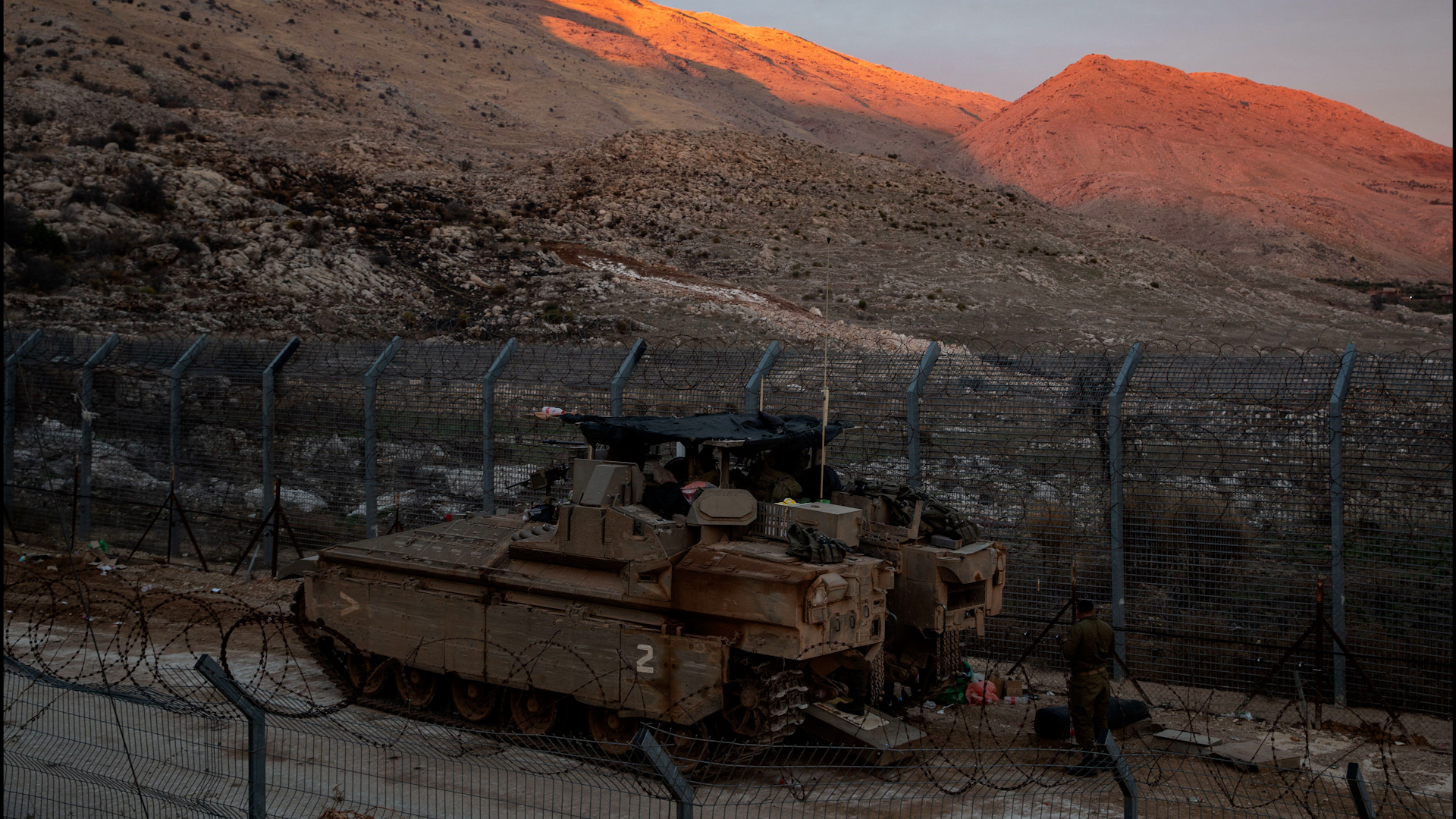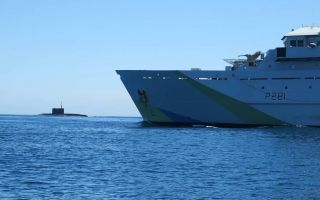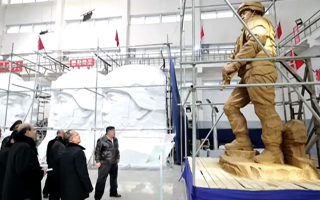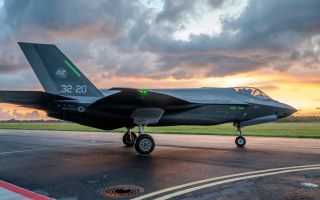
Sitrep: Israel has no business in Syria amid opportunistic incursion into DMZ

Israel is trying to take advantage of the fall of the Bashar al-Assad regime in Syria, having occupied Mount Hermon, Syria's largest mountain, for strategic purposes, according to Sitrep defence expert Professor Michael Clarke.
Prof Clarke, a former director general of Rusi, was on the latest episode of the Sitrep podcast, which analyses the top defence stories of the week and is available wherever you get your podcasts.
He said Israel has "no right to be on Mount Hermon", which is located between the Syria Lebanese border, but it will help them tactically.
"It does create a blindspot for Israeli radars, as it were, looking outwards," he said.
Prof Clarke also said if the Israelis controlled Mount Hermon, rather than the Syrians or Hezbollah, then "it gives them a huge advantage looking the other way" and stops it from being a blindspot.
"The Israelis have got no business there," Prof Clarke said.
"Tactically, it makes perfect sense, and that's the world that we're in at the moment."
Naftali Hazony, who describes himself on X as an "Israeli fighter pilot turned combat special forces", said Israel's control of the mountain was putting the Syrian capital in range of Israel's artillery shells.
He also points out that Mount Hermon has effectively blocked Israel's northern defences, creating a radar blind spot looking into Syria and parts of Lebanon.
This has been exploited by Iranian low-flying drones.
But now Israel, he says, can put radar communication sensors on the top of the mountain, which can look far into both Syria and Lebanon.
While it does give Syria a military advantage, Israel is being called "opportunistic" as it looks to take advantage of the current uncertainty in the country.
Israel, at a time when its Prime Minister Benjamin Netanyahu is on trial domestically for bribery and has had an arrest warrant issued against him by the International Criminal Court for war crimes in Gaza, has described its incursion into the demilitarised zone as "temporary".
But, Prof Clarke pointed out that we have heard Israel use the term "temporary" before.
"Temporary is a very flexible term," he said. "And we've seen Israel's temporary incursions before.
"One of them was in 1982 and that went on for about 18 years.
"The problem is that Israel thinks in these tactical terms, while people who sit here with the luxury of not having to fight for their survival, we talk strategically.
"The Israelis feel that they are up against a very immediate threat."
The group that has seized power in Syria Hayat Tahrir al-Sham, or HTS, has been affiliated with al-Qaeda in the past.
While they have tried to distance themselves from terrorist groups more recently, Prof Clarke said if Israel thinks Syria will be taken over by an Islamist government, they will act.
"If they think they'll be facing a kind of a Taliban in Damascus, then I'm sure they will annex a certain amount of Syrian territory," he said.
"Everything is up for grabs at the moment because Syria is a really important territory.
"It's a big country, 25 million people… and who controls Syria is really important to Turkey, to Iran and to Israel."
"Israel has also been busy destroying as much of the military structure of the old Syrian army as possible before this new Syrian government has a chance to really get itself moving."
This includes completely wiping out the Syrian navy, something Prof Clarke said is not strategic, but spiteful.
"The Syrian Navy was neither here nor there in terms of its ability to threaten Israel and, in a way, taking it out, taking it off the table for the new government is almost like an act of spite," he said.
"Because there's almost nothing they could have done with it that would do them any good.
"I think it was just, my guess is it was just an easy target.
"It's more important for the Israelis to have gone after weapons stocks and maybe weapon production facilities and, if they can prove it, chemical weapons stores.
"If the Israelis have destroyed some of those stores, then that could be a benefit to the region in general.
"But even that's not entirely certain, so we still need to wait… until we can work out what it is that has been destroyed.
"Again, makes tactical sense from Israel's point of view [but] it's not a great example of observance of international law."
You can listen to Sitrep wherever you get your podcasts, including on the BFBS Forces News YouTube channel.








